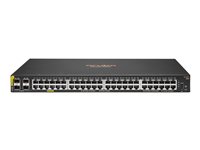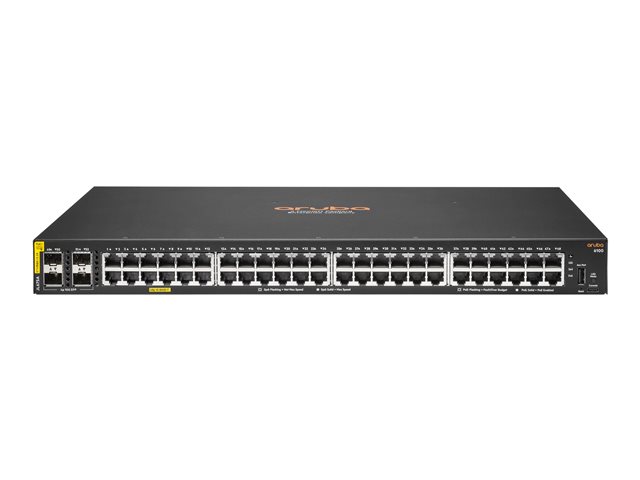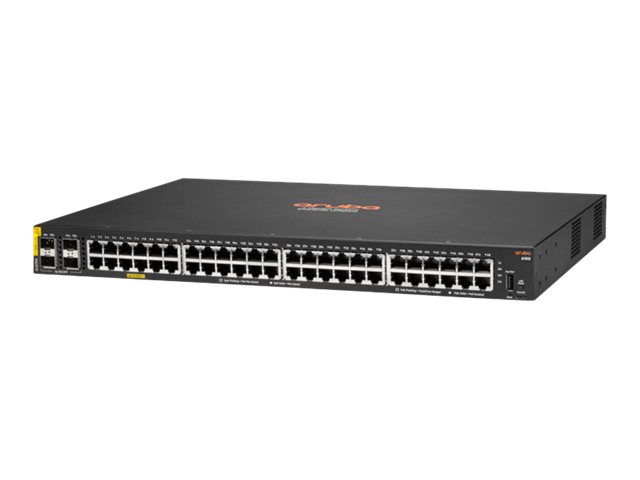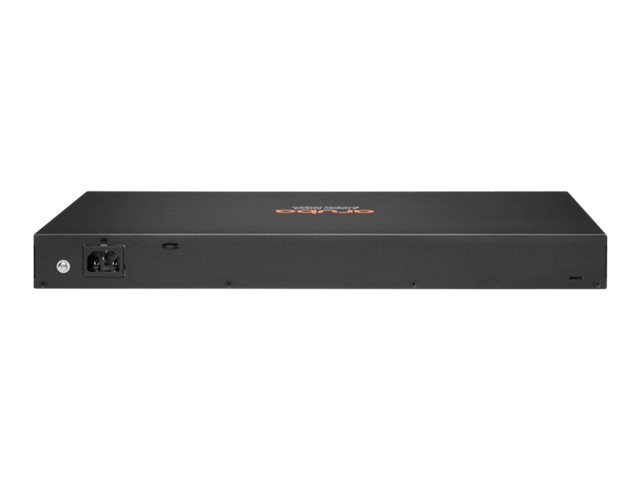Product description
Prepare your network for tomorrow's unpredictable demands with a powerful Aruba ASIC architecture and programmable AOS-CX operating system used across the Aruba CX portfolio to deliver a more consistent, more efficient operator experience. With robust QoS, support for static routing, and IPv6, the Aruba CX 6100 also simplifies ownership with no switch software licensing requirements.
Product features
- Entry level Aruba CX access layer switches
The Aruba CX 6100 Switch Series offers gigabit connectivity with high speed uplinks and optional PoE to provide entry level, reliable, and convenient wired access connectivity for enterprise branch office and SMB networks. Using Aruba AOS-CX operating system across Aruba CX switching platforms and deployment domains provides a simpler, more consistent operator experience. Fully-managed enterprise class switches deliver Layer 2 capabilities with support static routing, ACLs, robust QoS, traffic prioritization, sFlow, and IPv6 support. - Performance and power
The Aruba CX 6100 Switch Series is designed with Aruba ASICs that deliver very low latency, increased packet buffering, and adaptive power consumption. Deploy wireless access points and IoT devices with Aruba CX 6100 switch models that support up to 370W IEEE 802.3at Class 4 Power over Ethernet for up to 30W per port. Four built-in wire speed 1/10GbE uplinks eliminate bottlenecks at the access layer where users and devices connect. - Simplified configuration and management
The Aruba CX 6100 Switch Series provides flexibility to manage and simplify configurations with Aruba NetEdit, easy to use Web GUI, or industry standard CLI. Aruba NetEdit introduces automation that allows for rapid network-wide changes and verifies policy conformance post network updates. Software-defined ready with REST APIs for fine-grained programmability of network tasks. Reduce manual IT operation tasks around initial deployment or on-going configuration changes to accommodate adds, moves, and changes with colorless ports using local user roles and local-MAC-Authentication (LMA).









